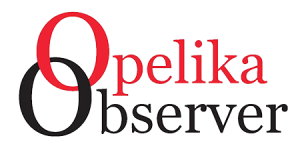Contributed by
Justin Smith, CPA
Many taxpayers own small businesses, either as fulltime jobs or possibly as side hustles to their regular employment. If you fall into either category, you need to understand the basics of what is and is not deductible for a small business.
First, many business owners will report income and expenses on Schedule C, which attaches to Form 1040. It is not a separate tax return by itself, but it does have different rules associated with it (especially when compared to Schedule A, which reports a taxpayer’s personal itemized deductions such as mortgage interest and charitable contributions).
The IRS does not provide a comprehensive list of all possible deductions; however, it does have an “ordinary and necessary” rule, which means that in order to deduct an expense, it should be a legitimate, valid business expense that has not otherwise been prohibited by the IRS.
Example Expenses
Many ordinary and necessary expenses include home offices, cell phone and Internet (or a percentage if these are split between personal and busines use), office or facility rent, advertising, repairs & maintenance for business equipment, office supplies & expenses, and possibly utilities. Other deductible expenses include business licenses and taxes, professional subscriptions and dues, continuing education related to the business, liability insurance and interest on debts (such as credit card interest).
Meals
Meals (but no longer entertainment) are 50% deductible. The rules related to deducting meals are actually quite strict – you can deduct overnight, out of town meals or legitimate business meals with an employee or client. What’s not deductible are your breakfast, lunch, dinner, coffee stops and snacks “on the way to” (or returning from) a business meeting.
Automobiles
Another tricky situation is the business use of an automobile. If you are using a personal vehicle for work expenses, you should just deduct the IRS standard mileage rate. Commuting back and forth to your place of business is not deductible; only mileage above that can be written off.
Further, while the IRS does allow you to claim actual vehicle expenses (such as gas, oil, tires, and maintenance), this should realistically only be used for 100% business vehicles. Keeping track of these expenses and allocating them between personal and business is far too much hassle to be worthwhile. Plus, you can only choose mileage or actual – not both.
Car payments are also not deductible, so don’t listen to anyone who tells you they are!
Clothing
Regular work clothing such as uniforms, shoes and shirts is not deductible.
Tax Considerations
There are many other valid examples of deductible expenses, but once you have identified your profit (income less expenses), it’s important to keep in mind that self-employment taxes could be in your future! In addition to federal and state income taxes, the self-employment tax of 15.3% will also be imposed to pay for your Social Security and Medicare obligations.
While the Social Security component of the tax (12.4%) is capped at the annual wage ceiling ($142,800 for 2021), which includes your employment and self-employment income, there is no limit on Medicare taxes. This tax is easy to overlook, and often gives taxpayers unexpected sticker shock. It’s best to discuss with a tax professional if you have further questions on this topic.
Many other considerations exist, such as maintaining proper books and records, paying employees and independent contractors (and determining how to classify them), managing payroll returns, identifying taxable and nontaxable income and even retirement account options. Be sure to thoroughly explore and discuss all your options with your accountant to help set your business up for success.
Justin Smith is a licensed Certified Public Accountant in Opelika, specializing in individual and small business tax and accounting. He can be contacted at 334-400-9234 or Justin@JSmithCPA.net. His Web site is www.jsmithcpa.net

